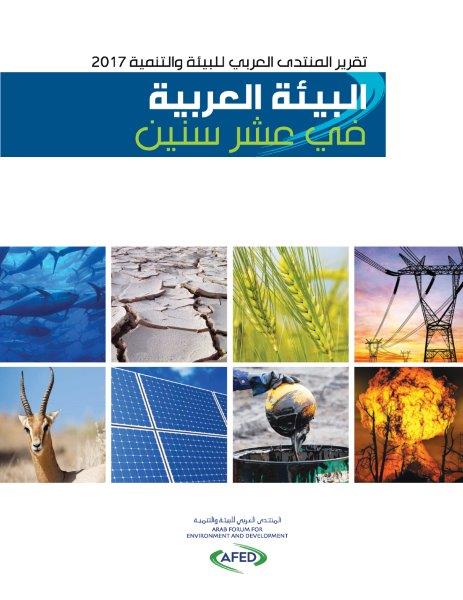| | Compromises make environmental policies
| | By Najib Saab
March 2000
"There is no middle ground in environmental issues", said a very enthusiastic friend, in objection to a number of Arab and international initiatives that he considered to be much less than the ultimate aspirations of environmentalists. He went on describing some politicians and environmental officials as mercenaries and traitors, for accepting compromises in environmental policies and treaties. I had to remind the friend that resonant environmental slogans are meaningless, unless coupled with a realistic action plan. The time is long past when general talk about the environment, to generate applause and excitement, was considered a heroic deed and a fight for the public good. And so is gone the time of demagogic slogans that have pushed politics, economy, and intellect in our societies, into a state of decay. So let us not repeat that bitter experience with respect to environmental issues. | | more... | |
|
|
| | INTERNATIONAL SALES REPRESENTATIVES | | By Najib Saab
February 2000
The Ministry of Rural and Municipal affairs did well last month when it stopped an ill-conceived project sponsored by the World Bank, to assist the government in managing Lebanon's solid waste. By the time the project was halted, most of the $2 million budget had been spent, only to contribute to the national state of chaos and confusion over waste management. | | more... | |
|
|
| | The endangered planet
| | By Najib Saab
January 2000
The world has never witnessed an era like ours in which hope and despair are in equal measure. Modern science promises to unveil many hidden secrets of the universe, strengthen man's control over natural resources, promote health and revolutionize communications. The danger, however, is that such developments could lack spirit and commitment. In this case, technological expansion will be superficial and will come at the expense of the basics of life. Power over resources will lead to endless depletion, so that we lose the basis of life. | | more... | |
|
|
| | Arab Environmentalists! Unite!
| | By Najib Saab
November-December 1999
Before you finish reading this page, the lungs of 160 million Arabs would have been filled with ten billion liters of polluted air, deserts would have expanded few hundreds of meters and 75 million Arabs would have drunk polluted water. While the population of the Arab countries will exceed 340 million at the beginning of the 21st century, Arab environment continues to deteriorate steadily and unchecked. The fact is that 160 million Arabs live in air-polluted cities, 75 millions have no access to clean drinking water, and drought is spreading to cover the last five percent of Arab green lands, while desert constitutes more than 95 percent of the total area. Before the sun sets today, the size of waste mountains in the Arab region will increase by more than 76,000 tons, as we produce some 30 million tons of wastes annually. | | more... | |
|
|
|
|
|
|
|
|
|
|
 | | | Arab Environment in 10 Years | | | ARAB ENVIRONMENT IN 10 YEARS crowns a decade of the series of annual reports produced by the Arab Forum for Environment and Development (AFED) on the state of Arab environment. It tracks and analyzes changes focusing on policies and governance, including level of response and engagement in international environmental treaties. It also highlights developments in six selected priority areas, namely water, energy, air, food, green economy and environmental scientific research. |
|
 |
|
|
|
|




